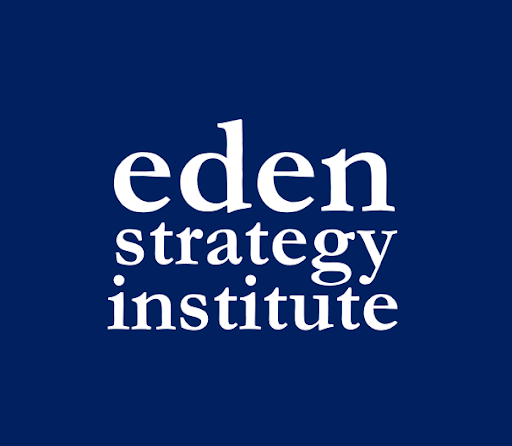
For quite some time now, businesses have viewed sustainability as a simple act of compliance, an obligation rather than an opportunity. But Calvin Chu, founder of Eden Strategy Institute, argues that this mindset is outdated. Instead of treating sustainability as a cost center or a box-ticking exercise, organizations need to embrace and integrate it into their business models, turning sustainability into a competitive advantage that drives financial success.
Chu emphasizes that sustainability and profitability are not opposing forces. In fact, when economic and environmental goals align, true impact can be achieved. Businesses that embrace this shift don't just protect the planet—they outperform competitors, attract better partnerships, and future-proof their operations.
The corporate world is waking up to a striking reality: many businesses have greater economic power than entire nations. When conglomerates commit to sustainable initiatives, the ripple effects can reshape industries and economies. But the key question remains: how do businesses move beyond compliance to make sustainability work for them?
The answer is in tying sustainability directly to revenue growth, cost efficiency, and long-term resilience. Chu explains that while cost-cutting measures like energy-efficient HVAC systems have merit, they often don't drive immediate business transformation. Instead, organizations need to focus on sustainability initiatives that impact revenue streams, customer engagement, and operational effectiveness.
In fact, one common misconception is that sustainability is all about 'green initiatives.' "The UN's definition of sustainability regards the overall impact of society, meeting the needs of the present without compromising the needs of the future." The impact of sustainability can be seen in all walks of life, including economic development, education, and digital trust, among so many others.
One of the most compelling examples is healthcare—specifically dementia care.
Dementia affects over 55 million people globally, with significant economic consequences. In countries like Singapore, where 92,000 people are estimated to be living with dementia, the strain on healthcare systems is immense. But dementia isn't just a medical issue—it's an economic one. When businesses, governments, and financial institutions invest in dementia-friendly initiatives, the benefits are far-reaching.
The Eden founder gives an example of economic growth. "A more dementia-inclusive workforce, a society where those who suffer can live more purposeful and dignified lives, means greater opportunities. More opportunities mean more people remain employed, contributing to productivity and increasing consumer spending," he states. More individuals staying financially active leads to higher participation in banking and investment markets. Furthermore, better dementia care could reduce hospitalizations, lowering long-term healthcare costs.
Eden Strategy Institute partnered with the National Volunteer & Philanthropy Centre (NVPC) to develop a whole-of-community approach to dementia care. Through the Dementia Colabs Series, Eden facilitated a cross-sector collaboration involving 85 organizations, leading to actionable solutions. These included an aggregator platform to centralize dementia resources, a campaign for early detection to reduce late-stage medical costs, community engagement strategies to create dementia-friendly environments, and innovative placemaking approaches to enhance accessibility for dementia patients. "The result? A healthier population, reduced economic burden, and a stronger financial ecosystem. And all of this is because of a sustainability-driven initiative," Chu affirms.
But healthcare isn't the only sector where sustainability creates an advantage. Across industries, businesses can leverage sustainability to win contracts, attract like-minded investors, and build stronger customer loyalty.

Businesses that refuse partnerships with organizations that lack sustainability commitments will drive a society where it becomes a prerequisite for doing business. Companies that integrate sustainability into their revenue model gain a strategic edge over competitors that merely comply with regulations. Consumers, investors, and employees are prioritizing brands that align with their values. According to Chu, "Gone are the days when people only cared about a company's financial success. Now, they care about how that success was achieved. And this is true across all stakeholders."
The financial sector played a crucial role in accelerating sustainability efforts. In 2020, when the world was filled with the COVID chaos, a renowned investment management and financial services firm announced it would prioritize sustainability in its investment decisions. This move triggered a domino effect across the investment world, as other funds followed suit.
While this shift helped mainstream sustainability, it also led to an overemphasis on risk and compliance. Chu points out that the compliance-driven sustainability efforts often fail to reach SMEs, which make up the bulk of emissions-producing enterprises. While large corporations face stringent ESG reporting requirements, small businesses, such as manufacturing, logistics, and shipping companies, often lack the resources to implement sustainable practices.
However, there is a new shift that might change the course. Scope III, a type of reporting that requires companies to account for emissions across their supply chains, is beginning to force change at the SME level. Even large corporations are reaching out to suppliers that meet sustainability benchmarks. This gradual, inevitable shift is pushing this sustainability deeper into global business ecosystems.
Similarly, IoT companies with millions of deployed devices initially focused on reducing packaging waste. However, Eden guided them toward a more impactful solution: leveraging IoT data to support their clients, optimizing supply chains, reducing resource waste, and enhancing efficiency at a systems level. This approach helped improve sustainability outcomes while creating new revenue streams.
"We don't have to see sustainability as a burden," Calvin Chu concludes. "If anything, the reality is, the businesses that get this right aren't just doing good—they're doing better." As companies realize this, they will be able to drive revenue, improve brand equity, and create long-term resilience; those who fail to adapt risk being left behind.







